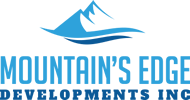
THE SLEEP-AT-NIGHT FUND
As we head into Round 3 of the boxing matching between Humans and Covid, we are re-visiting one of our favourite risk-mitigation tools: the Reserve Fund.
What keeps real estate investors awake at night?
- Tenant issues
- Ri$ing bills, Unexpected expenses
- Market Fluctuations, Economic drama
Tenant issues are best addressed with great property management. We are intentionally going to skip over this one today.
We are re-visiting this post for 2021 because today’s real estate investor in Canada faces some interesting challenges and some amazing opportunities. It’s so easy to get caught up in the headlines and excitement of a spring market, isn’t it?! FOMO is real! But we’re pretty sure no one wants buyer’s remorse by November.
Regular bills, property management fees and vacancy allowances are best addressed by setting your property up with good cashflow to handle the regular issues that arise. Sounds simple, right?
But what about the wild cards? Those elements that affect your property—but you have far less (if any) control over. Inflation is here to stay, the only question is “how much” our costs will rise. In addition, many investors are preparing for inevitable property tax increases—possibly unlike those rises we’ve seen in the past. And have you noticed those rising gas prices this week—of course, right?!
Many successful investors are planning for rising costs, and leaving a generous buffer in their budget for each property. But wait, there’s more.
Markets will go up and down, that’s all part of the real estate cycle. And these days economic drama follows (and leads) political drama very closely. As one investor you can’t possibly be expected to have control over those issues. Truly almost no one knows what the next government regulations will be, and their effects on the housing and rental housing markets.
But wait—didn’t you invest in real estate for your financial freedom?
One of the best ways to mitigate the “wild-cards” is to have a reserve fund, also known as a “sleep-at-night” fund. And yes, it is absolutely best to set it up when you acquire the property! Some people also suggest leaving the first year’s positive cash flow in your bank account to top-up your reserve fund; personally, we love this idea.
So, how much? Every real estate investor is about the numbers, right?! Your bare minimum should be 3 months of expenses: mortgage, taxes, insurance, utilities (even if your tenants pay them, consider the worst-case scenario where they come back to you).
Sometimes we hear investors concerned about the “opportunity cost” of leaving $10K “just sitting there” instead of investing it in stocks, for example. Do you have personal cash reserves that you could draw on if absolutely necessary? Part of your choice is about how much to leave in your “mini-business”=your property, versus how much to leave in your personal liquid assets. There is no one right solution for every investor. Each partnership will also decide their risk tolerance.
If you’re doing this for your financial freedom, your reserve fund should be that buffer for the unexpected. Most of our investor colleagues are all creating property Proforma’s with a reserve fund. That money isn’t “wasted;” it’s sitting at the ready, in your real estate business, and allowing you a good night’s sleep! Investing with confidence means mitigating as many risks as possible; your reserve fund is critical in this part of the planning process.
We’re always happy to have real estate conversations. Contact us at https://mountainsedgedevelopments.com/ or @MtnEdgeDevelops.

